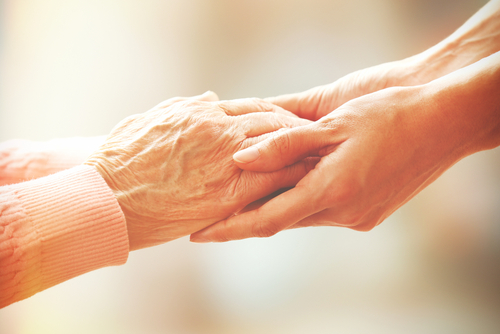
Recognizing Signs That A Senior Might Need Assisted Living
July 14, 2025 0 Comment Category: Care Center
Senior Care
As our loved ones age, it’s natural for them to experience physical and cognitive changes. However, there comes a point when these changes may indicate a need for more structured support than can be provided at home. Assisted living communities offer seniors a safe, social, and supportive environment tailored to their evolving needs.
But how do you know when it’s time? Recognizing the signs that a senior might benefit from assisted living can be challenging. It often involves emotional, physical, and practical considerations. In this article, we’ll explore the most common indicators that suggest a senior may need the added care and community an assisted living facility can provide.
1. Difficulty with Activities of Daily Living (ADLs)
Activities of Daily Living (ADLs) are basic self-care tasks that are essential for everyday functioning. These include:
-
Bathing
-
Dressing
-
Grooming and hygiene
-
Toileting
-
Mobility
-
Eating
If a senior struggles with one or more ADLs, it may signal the need for assistance beyond what the family can provide. Assisted living staff are trained to support residents with these tasks while encouraging independence and dignity.
2. Declining Physical Health
Chronic conditions often become more difficult to manage over time. Warning signs that health is deteriorating include:
-
Unexplained weight loss or gain
-
Increased frailty or falls
-
Worsening of chronic illnesses like diabetes or arthritis
-
Missed doctor’s appointments or confusion about medications
In an assisted living setting, trained professionals help manage medications, monitor health conditions, and provide access to medical care as needed.
3. Poor Medication Management
Taking medications correctly is critical to a senior’s health. Signs of poor medication management include:
-
Skipping doses or taking too much
-
Confusion about prescriptions
-
Refilling the wrong medications
-
Running out of important medications unexpectedly
Assisted living facilities provide medication management services, ensuring residents take the right medications at the right times, reducing the risk of complications or hospitalizations.
4. Isolation and Loneliness
Social isolation is a major concern for seniors and can lead to depression, anxiety, and cognitive decline. Warning signs include:
-
Avoiding social interactions
-
No longer participating in hobbies
-
Lack of interest in activities they once enjoyed
-
Feeling sad, withdrawn, or hopeless
Assisted living communities offer a vibrant social environment with daily activities, events, and communal dining, helping seniors stay connected and emotionally healthy.
5. Cognitive Decline and Memory Issues
Mild forgetfulness can be normal with age, but more serious memory problems may indicate the early stages of Alzheimer’s or other forms of dementia. Watch for:
-
Repeating questions or stories
-
Getting lost in familiar places
-
Forgetting to pay bills or keep appointments
-
Difficulty making decisions
Some assisted living facilities also offer specialized memory care for residents with dementia, providing structure and safety while promoting mental engagement.
6. Neglecting Household Responsibilities
Maintaining a household requires physical effort and mental organization. Signs that a senior is struggling include:
-
Piles of unopened mail
-
Dirty dishes, spoiled food, or unsanitary living conditions
-
Unpaid bills or shut-off notices
-
Poor home maintenance or cluttered walkways
In assisted living, residents no longer need to worry about cooking, cleaning, or home maintenance. This relieves stress and reduces the risk of accidents or neglect.
7. Unsafe Living Conditions or Increased Accidents
Frequent accidents or near misses, such as falls, burns, or car accidents, can indicate it’s no longer safe for a senior to live alone. Additional red flags include:
-
Burn marks on cookware
-
Unexplained bruises or injuries
-
Difficulty using stairs or bathroom fixtures
-
Forgetting to turn off appliances
Assisted living communities are designed with senior safety in mind, featuring grab bars, emergency call systems, accessible bathrooms, and staff on hand 24/7.
8. Caregiver Stress or Burnout
Family caregivers often take on more responsibility than they can handle, leading to physical and emotional exhaustion. Signs of caregiver burnout include:
-
Chronic fatigue
-
Irritability or resentment
-
Neglecting their health
-
Feeling overwhelmed or guilty
When caregiving becomes too much, assisted living can provide much-needed relief for families while ensuring that the senior receives professional care and attention.
9. Poor Nutrition or Dehydration
Many seniors find it difficult to shop for groceries, cook balanced meals, or remember to eat and drink regularly. Signs of malnutrition include:
-
Weight loss
-
Weakness
-
Fatigue
-
Dull skin or hair
In assisted living, residents are served nutritious, balanced meals and have access to snacks and hydration throughout the day, improving their overall health and energy levels.
10. Changes in Personal Hygiene or Appearance
A noticeable decline in personal hygiene can be one of the earliest signs that a senior is struggling. Look out for:
-
Wearing the same clothes for days
-
Body odor
-
Unkempt hair or nails
-
Resistance to bathing
Assisted living staff provide discreet, respectful help with grooming and hygiene, helping residents maintain confidence and self-esteem.
Making the Decision
Recognizing these signs doesn’t mean you must act immediately, but it’s a prompt to begin exploring options. Talk with your loved one about their needs and wishes, involve other family members, and consult with healthcare professionals.
It’s also a good idea to visit local assisted living communities to learn about services, amenities, and care plans. Starting the conversation early can lead to a smoother, less stressful transition when the time comes.
Conclusion
Choosing assisted living is never an easy decision, but recognizing the signs can help families make a proactive, compassionate choice. If your senior loved one is showing any of the above indicators, especially in combination, it may be time to consider how an assisted living community can improve their quality of life and safety.
By staying informed and engaged, you can help your loved one age with dignity, comfort, and the support they need to thrive.

leave A comment